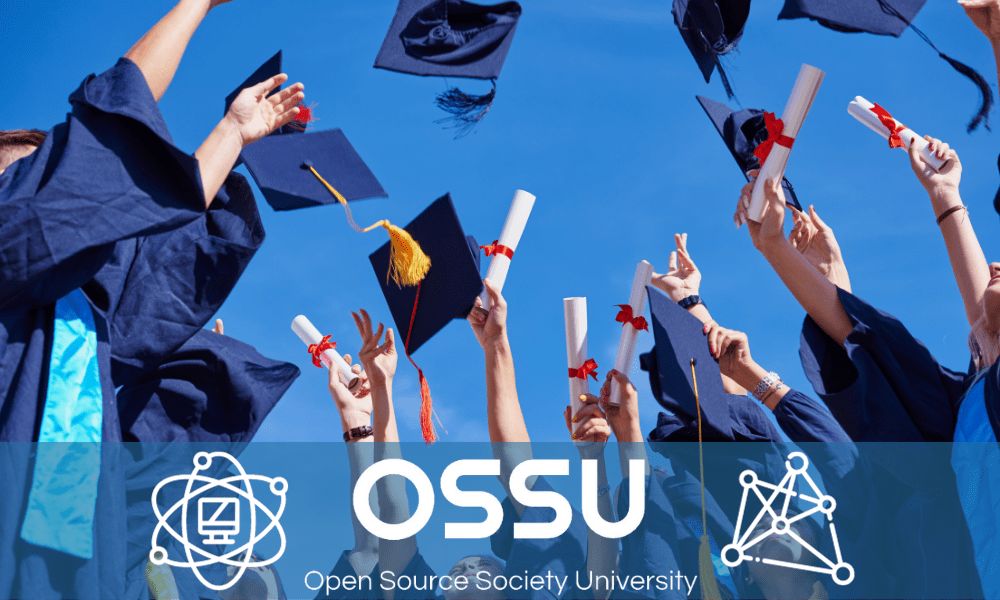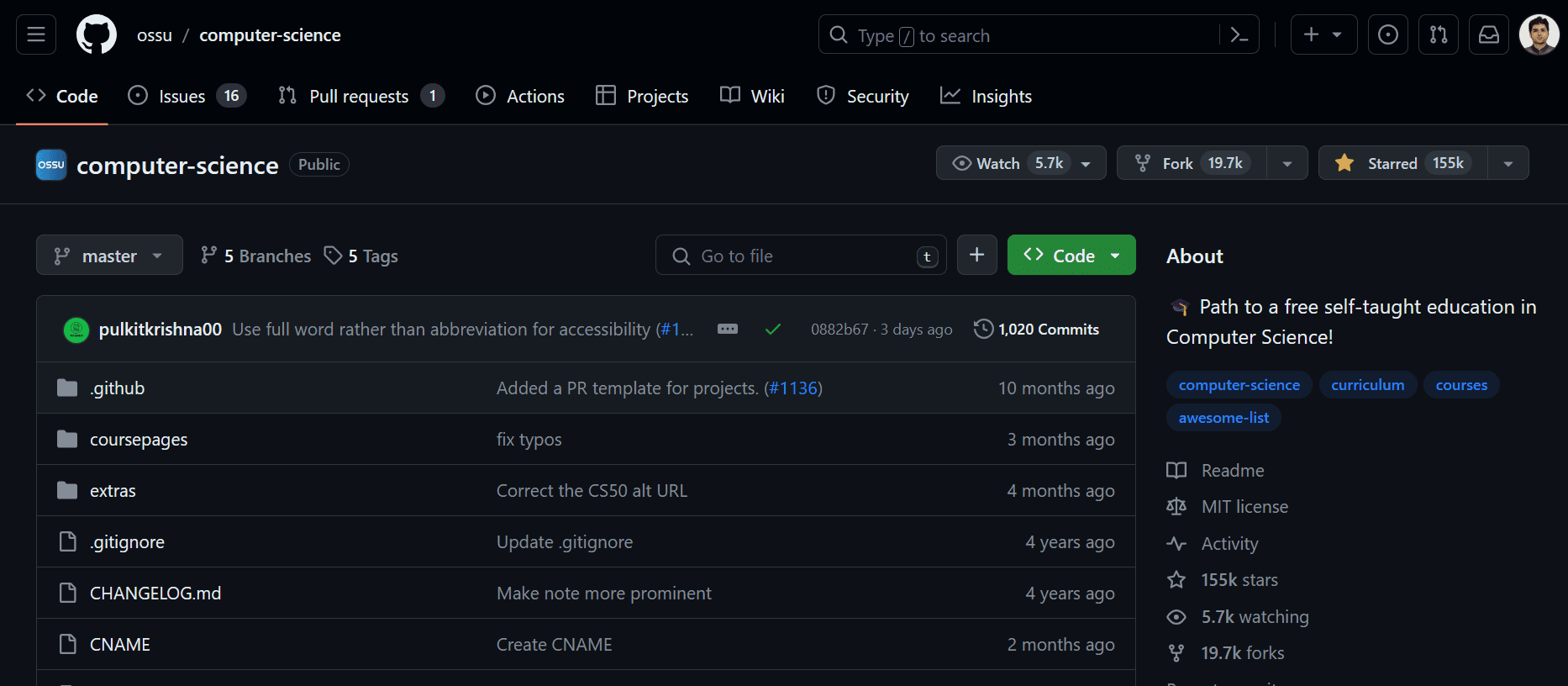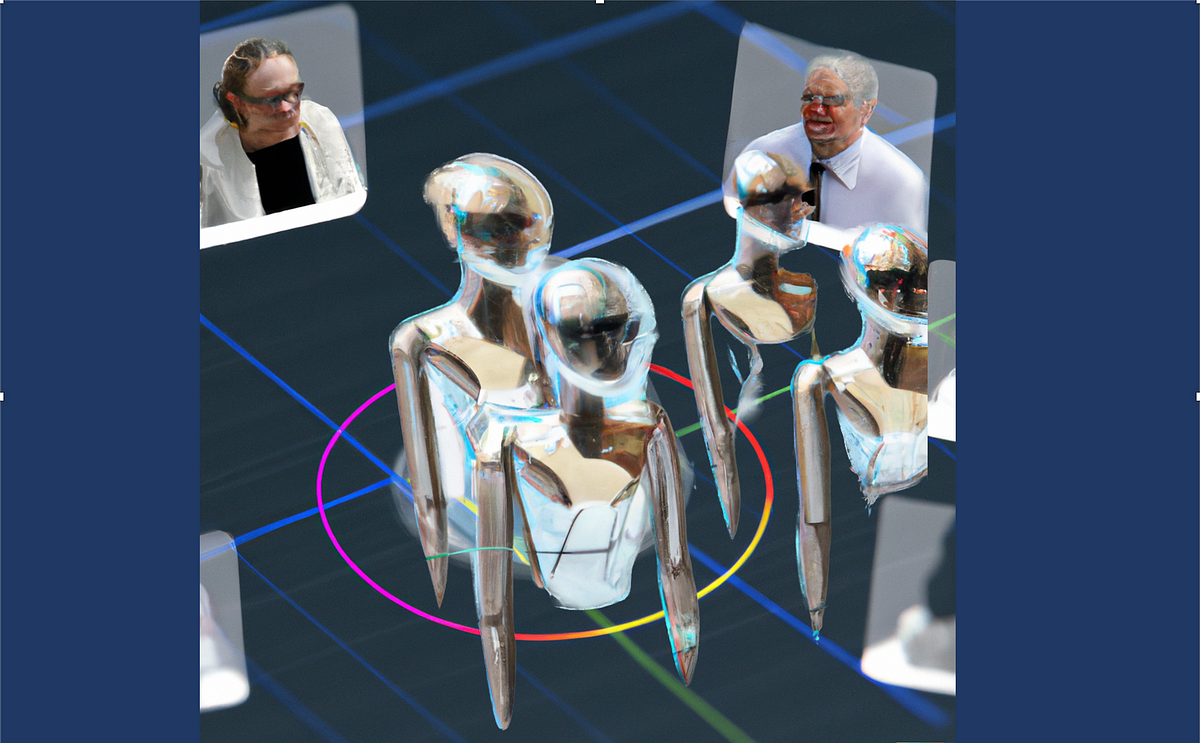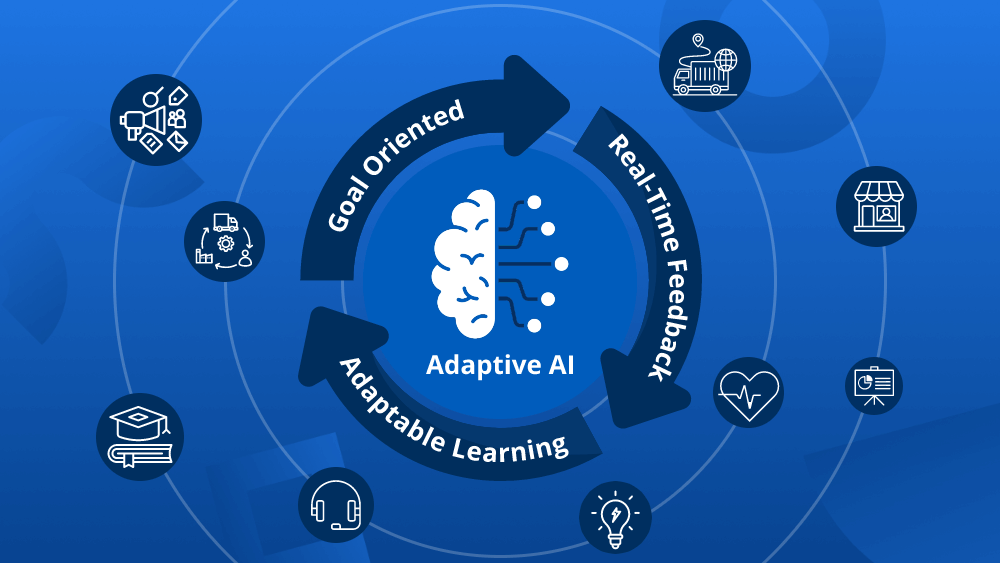
Image by Author
Have you ever wanted to study computer science but didn’t want to pay the high cost of college tuition? Well, you’re in luck! There is an incredible open-source curriculum called OSSU (Open Source Society University) that allows you to enroll in the equivalent of a 4-year computer science degree program entirely for free.
ossu/computer-science provides a complete education in computer science concepts fundamental to all computing disciplines. The curriculum is designed according to the degree requirements of undergraduate computer science majors at leading universities. It uses high-quality courses from platforms like edX, Coursera, and Udacity taught by professors from schools like MIT, Harvard, and Princeton.

Image from ossu/computer-science
The coursework covers everything from programming languages, algorithms, and data structures to operating systems, computer architecture, and software engineering. After completing the core CS requirements, you can choose advanced electives to specialize in areas like software testing, game theory, linear algebra, and more.
The best parts are that all the course materials are freely available online, and you can complete the program at your own pace. While it is possible to finish in 2 years if you study around 20 hrs/week, you can adjust based on your schedule. You also join a worldwide community of independent learners who support each other.
Prerequisites
Computer science curriculum has prerequisite expectations at different stages:
- Core CS: Students must have prior high school level math background including algebra, geometry and pre-calculus.
- Advanced CS: Students can only choose advanced electives after finishing all required courses in the Core CS section first.
- Advanced Systems: Any student wanting to specialize in the Advanced Systems electives must have previously taken at least one basic physics course in high school or college.
Intro CS
The Intro CS section has beginner-level courses to help students new to computer science understand if it is the right fit for them. It covers introductory programming to teach basic coding concepts and introductory computer science to provide students with an understanding of computation’s role in solving problems.
Core CS
The Core CS section has all the coursework equivalent to the first 3 years of a university computer science degree. It builds a strong base across essential areas like:
- Core programming: Covers languages, testing, design patterns, architecture, etc.
- Core math: Builds mathematical maturity required for data structures, algorithms, etc.
- CS tools: Introduces commonly used tools for tasks like version control, shell scripting, etc.
- Core systems: Deals with OS, networking, compilation, and computer architecture.
- Core theory: Fundamental theoretical concepts like algorithms, NP-completeness, etc.
- Core security: Secure coding, cryptography, and vulnerabilities.
- Core applications: Databases, machine learning, computer graphics, etc.
- Core ethics: Explores ethical implications of technology in society.
Advanced CS
After completing all required Core CS courses, students should choose additional Advanced CS courses based on their interests and intended field.
- Advanced Programming: Covers topics like debugging, parallel computing, UML, software architecture, compilers, functional programming with Haskell, and more.
- Advanced Systems: Goes deeper into digital logic, computer organization, pipelining, parallel processing, virtualization, and other lower-level computing concepts.
- Advanced Theory: Includes formal language theory, Turing machines, computability, concurrency models, computational geometry, logic, and game theory.
- Advanced Information Security: Provides more specialized security knowledge like compliance, digital forensics, secure development lifecycle, and verification.
- Advanced Math: Includes linear algebra, numerical methods, formal logic, probability theory, and other important mathematical foundations for computer science.
Final Project
The final project requires students to apply all their learnings by building something useful. This provides tangible proof of their knowledge and skills for showcasing to potential employers.
Creating a project not only looks great on a resume but also validates and reinforces your knowledge. You can build something new from scratch or contribute to an existing open-source project in need of help.
For more guidance, there are structured course specializations oriented around projects you may pursue. Topics include full-stack development, data science, robotics, and beyond. With the core foundations, you can now identify series matching your interests.
When your final project is complete, submit information on it to the OSSU PROJECTS via a pull request. Also, add the OSSU badge to your project README. Then, use community channels to announce your creation to fellow students.
The evaluation is done by getting feedback from peers and showcasing abilities rather than traditional grading. It also lets OSSU evaluate how well its curriculum prepares independent learners for real achievements.
The OSSU computer science degree program offers a fantastic opportunity for those who are interested in studying computer science without the burden of high tuition fees. With a well-structured curriculum that covers all the fundamental concepts of computer science, you can gain a comprehensive education in this field. The program’s flexibility allows you to learn at your own pace, making it an accessible option for anyone, regardless of their schedule. So why wait? Start your computer science education today for FREE with OSSU.
Abid Ali Awan (@1abidaliawan) is a certified data scientist professional who loves building machine learning models. Currently, he is focusing on content creation and writing technical blogs on machine learning and data science technologies. Abid holds a Master’s degree in Technology Management and a bachelor’s degree in Telecommunication Engineering. His vision is to build an AI product using a graph neural network for students struggling with mental illness.


